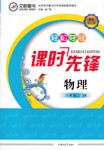题目内容
根据下面短文内容,在短文的空格处填上一个恰当的词,使短文完整、通顺。
People usually check whether their keys, wallets and phones are with them___1.___ going out. But many people in Chain now have one more important thing to take, a face mask(面罩). They hope that it __2.____ protect them from polluted air.
Since January, many cities in China have seen a lot of hazy(雾蒙蒙的)days. In Beijing, ____3.___five days in January were free of smog(雾霾). People in Xi’an only saw a blue sky on one day in February. Smog is dirty air that ___4.___like fog and smoke.
An official for the Ministry of Environmental Protection told Beijing News that PM2.5 pollution is the main problem with air pollution. PM2.5 refers to pollution with small particles(颗粒) of 2.5 micrometers(微米) or less in diameter(直径).
According to the Chinese Academy of Sciences, ___5._____cars and burning coal(煤) are two major factors(原因) for PM2,5.
Poor air is___6.___ for people’s health, especially for children and the elderly. A report from Beijing Children’s Hospital shows that from Jan 5 to 11, half of the patients in the internal medicine department(内科门诊) are there for respiratory(呼吸) problems.
Air problems and environmental protection have become a concern(关切的事) for the whole nation. Premier Wen Jiabao___7.____ his last Government Work Report on March 5. the report said that the government should work hard to prevent pollution and give people a ____8.____living environment.
It calls on people to make full use of energy and resources and cut down on energy use.
1.before
2.can
3.only
4.looks
5.driving
6.bad
7.made
8.healthy / good
【解析】
试题分析:这篇短文主要讨论了去年冬天发生的雾霾天气。文中重点介绍了北京和西安的雾霾天气,并分析了造成此种天气的原因及对人们健康的危害。
1.联系上下文,可知此处指的是再出去以前。结合语境可知填介词before在……以前。
2.联系下文,可知他们希望以此能保护他们免受空气污染的伤害。结合语境可知填情态动词can,能,能够。
3.联系下文,可知在北京一月只有五天没有雾霾。结合语境可知填副词only,仅仅,只有。
4.联系下文,可知此处指的是看起来像雾和烟。结合语境可知本句描述的是客观性事实,故用一般现在时态。主语that表达抽象含义,故谓语动词用单数形式,填looks,看起来。
5.联系下文,可知此处指的是开汽车,动名词作主语表示抽象动作,联系下文可知填动名词driving,驾驶。
6.句意:不好的空间对人们的健康有害。结合语境可知填形容词bad,坏的,不好的,作表语。
7.联系下文,可知此处指的是温家宝做了他最后一次政府报告。结合语境可知本句描述的是过去发生的动作,故谓语动词用过去式,故填过去式动词made,使得,进行,制作。
8.联系下文,可知此处指的是一个健康的,好的生活环境。故填形容词healthy / good,健康的/好的,作定语。
考点:短文中词汇短语的运用能力
点评:本题难度较大,由于给出的关键信息较少,只能根据文章前后句子之间意思推断出词义,判断出所缺单词,然后根据该单词在句子中的句子成分,所起作用,确定单词词形,进行适当词形变化。书写答案时,注意首字母大写。注意此类题型由于没有限定答案,故答案可能不唯一,注意选择能使上下文语义通顺的最佳答案。

 文敬图书课时先锋系列答案
文敬图书课时先锋系列答案A)根据下面短文内容,在文章后小题的空格里填入适当的词语,
注意:每空一词。
Different cultures make different families. For example, there are differences in the way Chinese and Americans raise children.
First, Chinese and American families have different attitudes towards independence (独立). Each Chinese child has been considered to be the apple of parents’ eyes. It is not surprising to see Chinese parents always helping their children with getting dressed, having meals, bathing, and other things. American parents, on the other hand, teach their children how to do things alone from childhood.
Second, most Chinese parents often make their children have extra classes, such as piano, drawing, or singing lessons. Parents want their children to develop in an all-round way and be better students than other children. The problem is that their children may not be interested in these classes. American parents try to respect (尊重) their children’s interests and usually don’t make them do what they don’t like.
Third, there is a difference in the way parents in China and American treat mistakes that children make. Many Chinese people believe in the saying, “Spare the rod, spoil the child (不打不成器).” When Chinese parents see their children make mistakes, they often get very angry, some even hit them instead of making them realize their mistakes. This affects the children’s growth and the forming of their character, and also makes the generations gap (代沟) wide. American parents think it is common for people to make mistakes because mistakes are a part of life. They often say, “It’s OK to make mistakes. Making mistakes helps you learn.” They help their children deal with mistakes by giving them ideas about how to turn mistakes into learning opportunities (机会).
Families in China and America are quite different, and one way may seem better than the other, but it is better to think about whether the parents fit the family or not instead of talking about which one is wrong or right.
|
Comparisons |
Differences |
|
Different attitudes towards independence |
Chinese parents always try to do almost 1 for their children. |
|
American parents try to let their children 2 with things on their own from childhood. |
|
|
Different ways of treating children’s 3 . |
Chinese children are often made to go to 4 classes. |
|
American children are usually encouraged to do what they 5 . |
|
|
Different ways of treating children’s mistakes |
Chinese parents are 6 about children’s mistakes and often 7 them. |
|
American parents think everyone can make mistakes and they are a good 8 to learn. |
|
|
The author’s 9 |
|
|
Parenting styles should depend on what is 10 for the family. |
 Our eyes are very important to us. They are like cameras. We can see beautiful things and colors around us.
Our eyes are very important to us. They are like cameras. We can see beautiful things and colors around us.